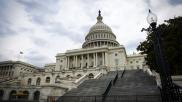| Editor's Choice: Policy | Mammography interpreted by two radiologists instead of one can lead to reduced recall rates and improved cancer detection, according to a new study published in Radiology. However, the authors noted, any additional cancers detected require “careful consideration” as they may be smaller, less likely to be invasive or less likely to have involved nodes. Mammography interpreted by two radiologists instead of one can lead to reduced recall rates and improved cancer detection, according to a new study published in Radiology. However, the authors noted, any additional cancers detected require “careful consideration” as they may be smaller, less likely to be invasive or less likely to have involved nodes. | | |
| The American College of Radiology (ACR) and Society of Breast Imaging (SBI) have published new breast cancer screening guidelines, once again recommending that all women begin annual screening at age 40. The American College of Radiology (ACR) and Society of Breast Imaging (SBI) have published new breast cancer screening guidelines, once again recommending that all women begin annual screening at age 40. | | |
| While it might not be on every physician’s daily radar, graduate medical education (GME) funding is still key to quality healthcare and has implications for both academic centers and private practices. While it might not be on every physician’s daily radar, graduate medical education (GME) funding is still key to quality healthcare and has implications for both academic centers and private practices. | | |
| Screening mammography utilization dropped in 2010 after years of growth, according to a new study published in the American Journal of Roentgenology. The decline in utilization, the authors noted, seems to have been brought on by revised breast cancer screening guidelines released by the U.S. Preventive Services Task Force (USPSTF) in 2009. Screening mammography utilization dropped in 2010 after years of growth, according to a new study published in the American Journal of Roentgenology. The decline in utilization, the authors noted, seems to have been brought on by revised breast cancer screening guidelines released by the U.S. Preventive Services Task Force (USPSTF) in 2009. | | |
| When President Trump signed the $1.3 trillion spending bill into law on March 23, it included an extension of a rule first passed in 2015 that recognizes 2002 U.S. Preventive Services Task Force (USPSTF) breast cancer screening recommendations as opposed to 2009 or 2016 recommendations. When President Trump signed the $1.3 trillion spending bill into law on March 23, it included an extension of a rule first passed in 2015 that recognizes 2002 U.S. Preventive Services Task Force (USPSTF) breast cancer screening recommendations as opposed to 2009 or 2016 recommendations. | | |
| Utah Gov. Gary Herbert, Washington Gov. Jay Inslee and Florida Gov. Rick Scott have all signed breast density reporting legislation into law this week. These laws require facilities that perform mammography to notify patients when it is determined they have dense breast tissue. Utah Gov. Gary Herbert, Washington Gov. Jay Inslee and Florida Gov. Rick Scott have all signed breast density reporting legislation into law this week. These laws require facilities that perform mammography to notify patients when it is determined they have dense breast tissue. | | |
| Enrollment in a Medicare Shared Savings Program (MSSP) Accountable Care Organization (ACO) is associated with improvements in appropriateness of breast and colorectal screening, according to a new study published in JAMA Internal Medicine. It was also associated with a reduction in the number of patients being screened for prostate cancer. Enrollment in a Medicare Shared Savings Program (MSSP) Accountable Care Organization (ACO) is associated with improvements in appropriateness of breast and colorectal screening, according to a new study published in JAMA Internal Medicine. It was also associated with a reduction in the number of patients being screened for prostate cancer. | | |
| A week-old law in Kentucky is barring federally certified radiologists from reading x-rays in state black lung compensation cases, leaving the task to the six pulmonologists who practice in the area, NPR has reported. A week-old law in Kentucky is barring federally certified radiologists from reading x-rays in state black lung compensation cases, leaving the task to the six pulmonologists who practice in the area, NPR has reported. | | |
| |
|
| ![]() | |
|










